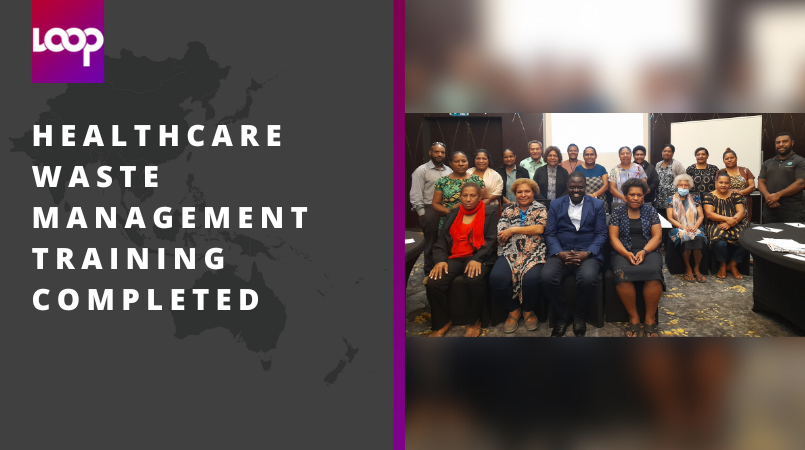
More than 20 healthcare workers in the National Capital District (NCD) completed a two-day training on Infection Prevention and Control (IPC) and Health Care Waste Management (HCWM) last week.
The training was conducted from 11-12 July by the National Department of Health through the World Bank-funded COVID-19 Emergency Response Project and was facilitated through the NCDPHA.
As demand for quality healthcare increases, healthcare waste also increases, consistent with population growth and expansion of medical services. Communities exposed to healthcare waste are at risk of injury and disease, including healthcare personnel and waste handlers.
Healthcare wastes include all wastes generated from all sources of healthcare establishments. These include infectious or potentially infectious wastes also referred to as medical wastes while the other type of waste is solid waste or general waste also generated in the healthcare establishments.
The IPC and HCWM training aimed at addressing areas gaps identified by participants as part of improving Environment and Social Standards (ESS) relating to healthcare waste management.
Participants learnt about the impacts of the healthcare waste generation and appropriate management methods, responsibilities to waste management, and procedures necessary to ensure proper healthcare waste management is practiced. They will in turn provide HCWM training to other personnel within their facility.
Participants included clinic managers, nursing officers, laboratory technicians, and infection prevention and control officers from 15 health facilities, in NCD including the Port Moresby General Hospital, Central Public Health Laboratory (CPHL), NCDPHA and Laloki Psychiatric Hospital.
They learned to mitigate environmental and health risks associated with inadequate management of Tuberculosis (TB) and COVID-19 and other healthcare waste, particularly with segregation, collection, storage, treatment, and proper disposal at the Emergency TB and COVID-19 project sites.
Acting IPC Officer from Laloki Psychiatric Hospital, Lucy Kingapa was thankful to be included in the training.
“I’m thankful to be part of this training because I’ve already started work at Laloki Hospital by myself. With what I’ve learned from this training, I am now able to go back and change things that I need to change and do better. I also need technical assistance setting up incinerators to manage our wastes better,” said Kingapa.
Reuben Kingal, another participant who is the IPC Coordinator from the NCDPHA, said staff handle waste every day without actually thinking about how these wastes can affect them if not managed well.
“I’ve learnt a lot from this training. We deal with waste all the time in the health facility, but sometimes we don’t think about how handling these wastes may come back to affect us. We have bins, but people, including our staff, are not discarding the right waste in the right bins. We don’t think about the impact of wastes not being handled or discarded properly.
“It’s a cycle. The impact of not managing healthcare wastes properly comes back to us through respiratory infections, airborne diseases, etc. Sorting out our wastes properly at the health facility plays an important part in managing healthcare waste,” said Kingal.
Participants also highlighted some challenges such as no constant supply of PPE proper handling and storage of waste equipment, proper segregation of wastes, correct disposal of various health care wastes including expired medication and plain ignorance by health care workers, patients and the public.
The COVID-19 Emergency Response Project aims to prevent, detect and respond to COVID-19 and strengthen national health systems for public health preparedness.
It is implemented concurrently with the Emergency Tuberculosis Project with funding support from the World Bank.
